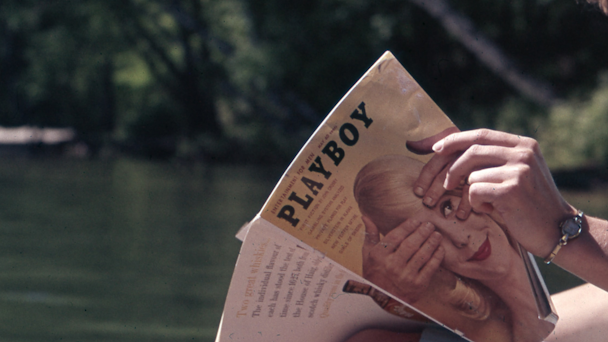Old-school porn and the value of delayed gratification in marketing
Why is everyone in such a big hurry? Rather than feeding society’s obsession with immediate gratification, argues Nick Jefferson, a strategic consultant at creative consultancy Ibis Ideas, marketers should invest in building on the suspense and tension of a story to drive deeper engagement and greater appreciation.

There is a value in having to wait for something
When I was a teenage boy, I’d sometimes find porn in hedges.
No one I’ve said this to recently really believes me. They think I’m just trotting out some well-worn urban myth.
But the truth is, we actually did used to find porn in hedges: torn fragments of someone else’s Razzle or Club (there’s a whole separate piece to be written on the hierarchy of brands in pre-internet porn – as complex and class-based as that of supermarkets).
And these vulgar scraps of paper were so precious.
Lest we forget: before the internet, most teenage boys didn’t get to see very many naked women. If you were younger than 16, you couldn’t buy – or even reach – the top-shelf magazines. And so the relative scarcity drove up value; the ripped photos assumed a currency of their own.
Cecil Rhodes understood the power of scarcity. The founder of De Beers knew that oversupply would drive down prices, so he formed an agreement with the London-based Diamond Syndicate to ensure that output and prices were regulated. Smart.
Today, we don’t see much scarcity. Indeed, we live in an age of ubiquity. Everything is available, everywhere, all the time. Our approach as consumers is one of, ‘see it, want it, get it.’ And as marketers, we have fed this beast.
To be fair, it’s an approach that, historically speaking – and at least when measured by sales – has worked. People are buying more things than they ever have before. As a generation, we have gorged ourselves on instantaneous consumption – getting as much as we can as quickly as we can, like kids in a sweet shop.
But as they grow up, every kid learns that too many sweets make you feel sick. Sometimes you enjoy a sweet more if you only have one or two. Sometimes it’s nice to wait.
People in marketing talk endlessly about ‘storytelling.’ I’m no exception. My last piece was about ‘the greatest story ever told.’ But here’s the thing about a good story: so much of it depends on the timing, the build-up, the dramatic tension and the rhythm. Don’t we all yearn for some slow intrigue, and the delicious drip-feed of delayed gratification?
Look at the success of the nuanced character development of Mad Men or Breaking Bad, or how people suddenly don’t seem to be ‘binge-watching’ today like they were a year or two ago. Consider Apple TV: deliberately releasing episodes of its flagship shows on a weekly basis, rather than making all episodes in a season available at once.
Imagine for a second that I might be on to something – what rich, fertile territory we’d have as marketers. Rather than trying to jam a big, dumb ‘all-you-can-eat’ message into one 30-second TV spot, we could be sponsoring the reintroduction of the serialization of novels, using a weekly comic strip as part of a native advertising campaign, or rediscovering how to integrate our products into the arc of a soap opera narrative.
It’s not like we haven’t done it before (anyone else remember the Gold Blend couple?), and the recent explosion in new channels now gives us so many different possibilities.
Excited?
I can hardly wait.
Nick Jefferson is strategic consultant at Ibis Ideas, the creative consultancy.
